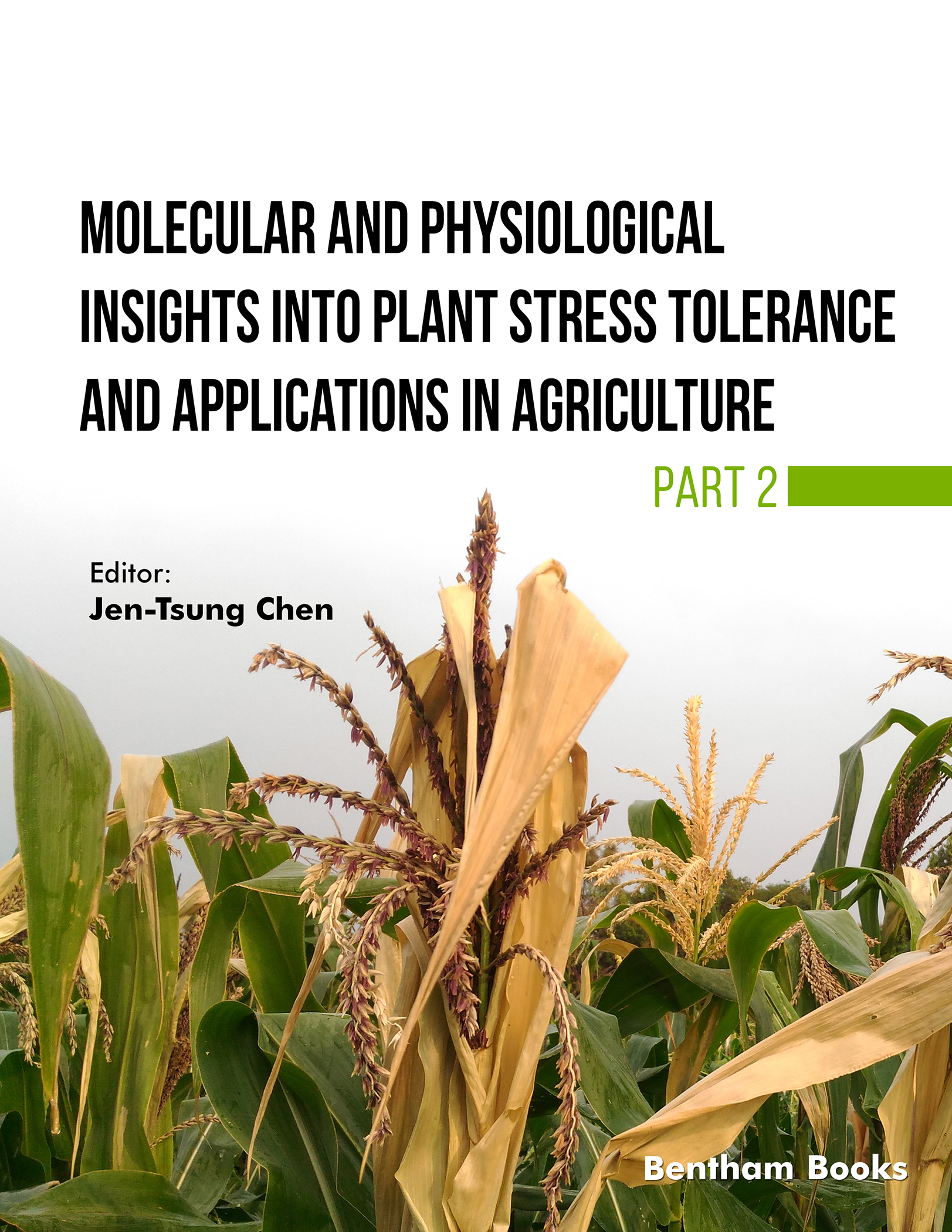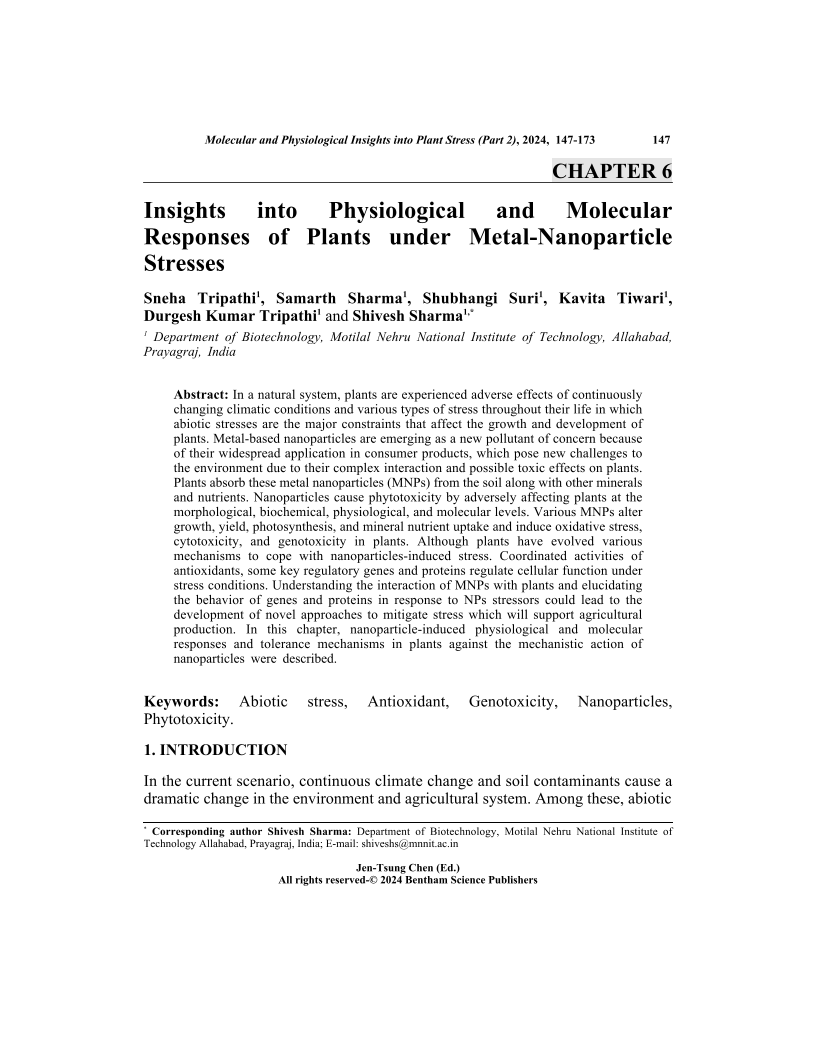Insights into Physiological and Molecular Responses of Plants under Metal-Nanoparticle Stresses

- Authors: Sneha Tripathi1, Samarth Sharma2, Shubhangi Suri3, Kavita Tiwari4, Durgesh Kumar Tripathi5, Shivesh Sharma6
-
View Affiliations Hide Affiliations1 Department of Biotechnology, Motilal Nehru National Institute of Technology, Allahabad, Prayagraj, India 2 Department of Biotechnology, Motilal Nehru National Institute of Technology, Allahabad, Prayagraj, India 3 Department of Biotechnology, Motilal Nehru National Institute of Technology, Allahabad, Prayagraj, India 4 Department of Biotechnology, Motilal Nehru National Institute of Technology, Allahabad, Prayagraj, India 5 Department of Biotechnology, Motilal Nehru National Institute of Technology, Allahabad, Prayagraj, India 6 Department of Biotechnology, Motilal Nehru National Institute of Technology, Allahabad, Prayagraj, India
- Source: Molecular and Physiological Insights into Plant Stress Tolerance and Applications in Agriculture- Part 2 , pp 147-173
- Publication Date: February 2024
- Language: English
Insights into Physiological and Molecular Responses of Plants under Metal-Nanoparticle Stresses, Page 1 of 1
< Previous page | Next page > /docserver/preview/fulltext/9789815179699/chapter-6-1.gif
In a natural system, plants are experienced adverse effects of continuously changing climatic conditions and various types of stress throughout their life in which abiotic stresses are the major constraints that affect the growth and development of plants. Metal-based nanoparticles are emerging as a new pollutant of concern because of their widespread application in consumer products, which pose new challenges to the environment due to their complex interaction and possible toxic effects on plants. Plants absorb these metal nanoparticles (MNPs) from the soil along with other minerals and nutrients. Nanoparticles cause phytotoxicity by adversely affecting plants at the morphological, biochemical, physiological, and molecular levels. Various MNPs alter growth, yield, photosynthesis, and mineral nutrient uptake and induce oxidative stress, cytotoxicity, and genotoxicity in plants. Although plants have evolved various mechanisms to cope with nanoparticles-induced stress. Coordinated activities of antioxidants, some key regulatory genes and proteins regulate cellular function under stress conditions. Understanding the interaction of MNPs with plants and elucidating the behavior of genes and proteins in response to NPs stressors could lead to the development of novel approaches to mitigate stress which will support agricultural production. In this chapter, nanoparticle-induced physiological and molecular responses and tolerance mechanisms in plants against the mechanistic action of nanoparticles were described.
-
From This Site
/content/books/9789815179699.chapter-6dcterms_subject,pub_keyword-contentType:Journal -contentType:Figure -contentType:Table -contentType:SupplementaryData105

